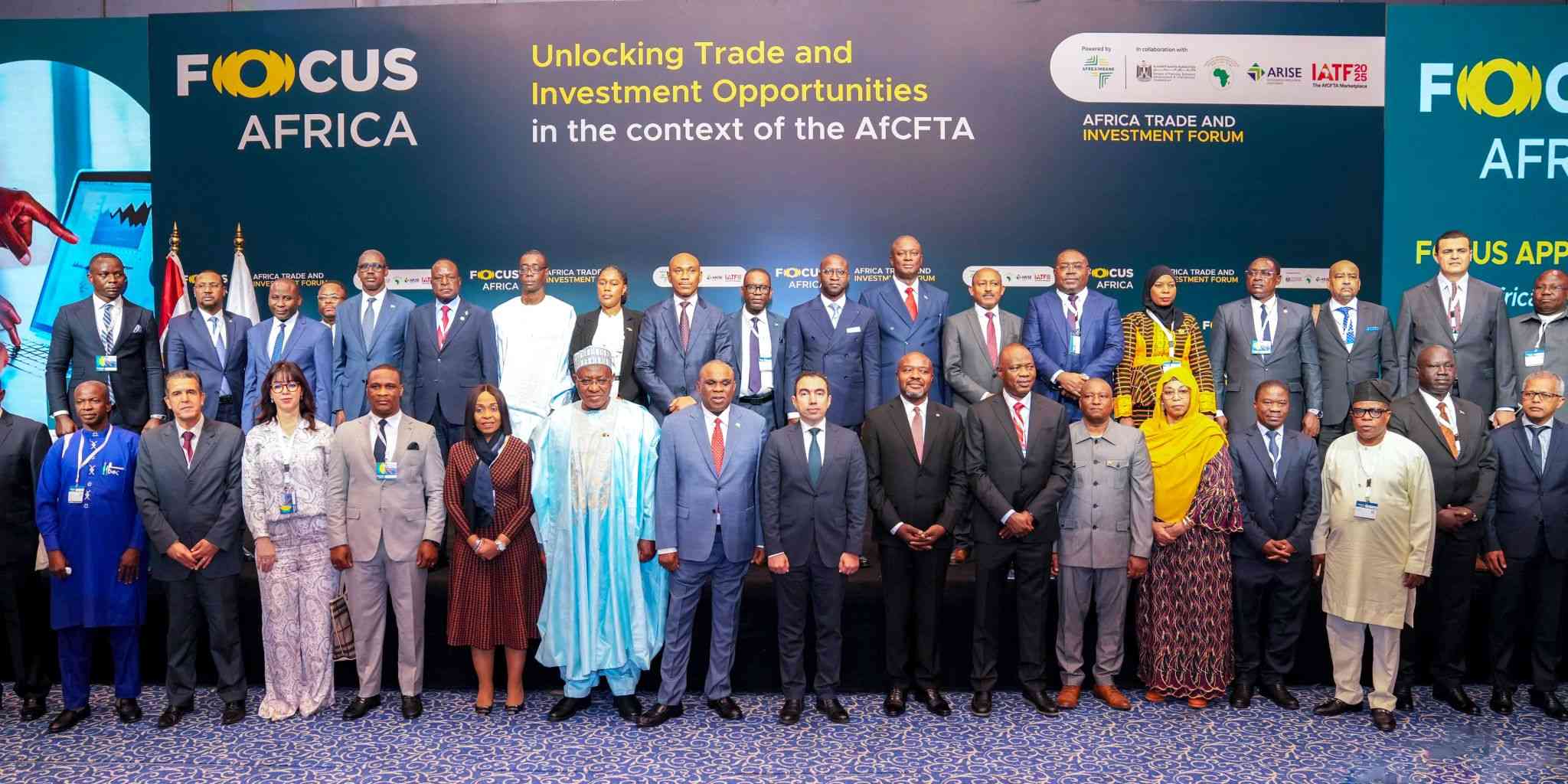
Globalisation is under threat amid rising protectionism which must force African countries to look inwards for growth and development, Afreximbank president Benedict Oramah has said.
The world is in a tailspin after United States President Donald Trump introduced reciprocal tariffs on countries to cut trade deficits as part of America’s first policy.
The tariffs were paused for 90 days for all countries, except China.
Speaking at the inaugural FOCUS Africa Trade and Investment Forum this week, Oramah said the African Continental Free Trade Area (AfCFTA) was the only way out for the continent.
“Globalisation, as we know it, is regrettably under life support. The African Continental Free Trade Area is the instrument that offers Africa the opportunity to look inwards within itself, as a source of growth and development,” Oramah said.
“If we achieve a truly integrated market with a combined GDP of about US$3 trillion, a diverse ecosystem and variety of natural resources, we can create our internal globalisation and integrate the African Diaspora and engage the rest of the world more meaningfully.”
Oramah said there was a glimmer of hope in 2015 that globalisation would help pull people out of poverty, like in Asia, where it helped pull about one billion people out of poverty.
He said such hopes were dashed, with discontent towards globalisation reaching unprecedented levels in the USA and Europe. It also brought anti-globalists to power in the USA and some European countries.
- Letter from America: Is former president Donald Trump a hero or villain?
- Chidzivo, Tarakinyu clinch Kabag honours
- Letter from America: Is former president Donald Trump a hero or villain?
- The Fiddler: Is honesty the best policy?
Keep Reading
Oramah said multilateralism and globalisation took the back seat, with the coming to power of President Donald Trump in the United States (US).
Multiple global shocks, such as the COVID-19 pandemic, the Ukraine crisis, and sovereign debt challenges, have combined to worsen the crisis, he added.
“The posture of the US Government, under the second coming of President Trump, is raising alarm about the future of the global economy. With their preference for the use of high tariffs as an instrument for rebalancing US goods trade with the rest of the world, almost all African countries are concerned about the impact on their economies,” Oramah said.
Africa’s silver lining must come from AfCFTA is the world’s largest free trade area, bringing together the 55 countries of the African Union and eight regional economic communities, Oramah said. All but one country have signed the agreement establishing the AfCFTA, while 48 countries have ratified the trade agreement.
FOCUS Africa Trade and Investment Forum ran from April 15 to 16 in Cairo, Egypt. It was organised by Afreximbank in collaboration with the Ministry of Planning, Economic Development and International Cooperation of Egypt and the Group of African Ambassadors in Cairo.
Speaking at the two-day event, Rania Al-Mashat, Egypt’s minister of Planning, Economic Development and International Cooperation, said: “Today, Africa stands at a pivotal moment. With a market of 1,4 billion people and a combined gross domestic product of over US$3,1 trillion, the African Continental Free Trade Area—the largest free trade area globally—presents unprecedented opportunities. However, intra-African trade currently accounts for only 15% of total African trade. This is where our efforts must intensify.”
Mohamadou Labarang, Dean of the African Ambassadors’ Group, said,“Globalisation appears to be losing momentum. Each country and region must be able to harness its potential to meet these emerging challenges.” Kanayo Awani, executive vice-president of Intra-African Trade and Export Development at Afreximbank, said Africa’s infrastructure gap is not just a statistic, but puts the brakes on “our growth and a bottleneck to our global competitiveness”.She said that at the heart of Africa’s transformation was scaling up engineering, procurement, and construction (EPC) models to meet the continent’s infrastructure and trade ambitions.
“By mobilising African capital, building local capacity, and fostering strategic partnerships, we are proving that African firms can deliver world-class infrastructure — not in theory, but in practice,” she said.“We must move from pockets of success to a coordinated push for scale. With the right models, the right finance, and the right vision and partners, Africa’s EPC sector can become the cornerstone of our integration and trade agenda.”










